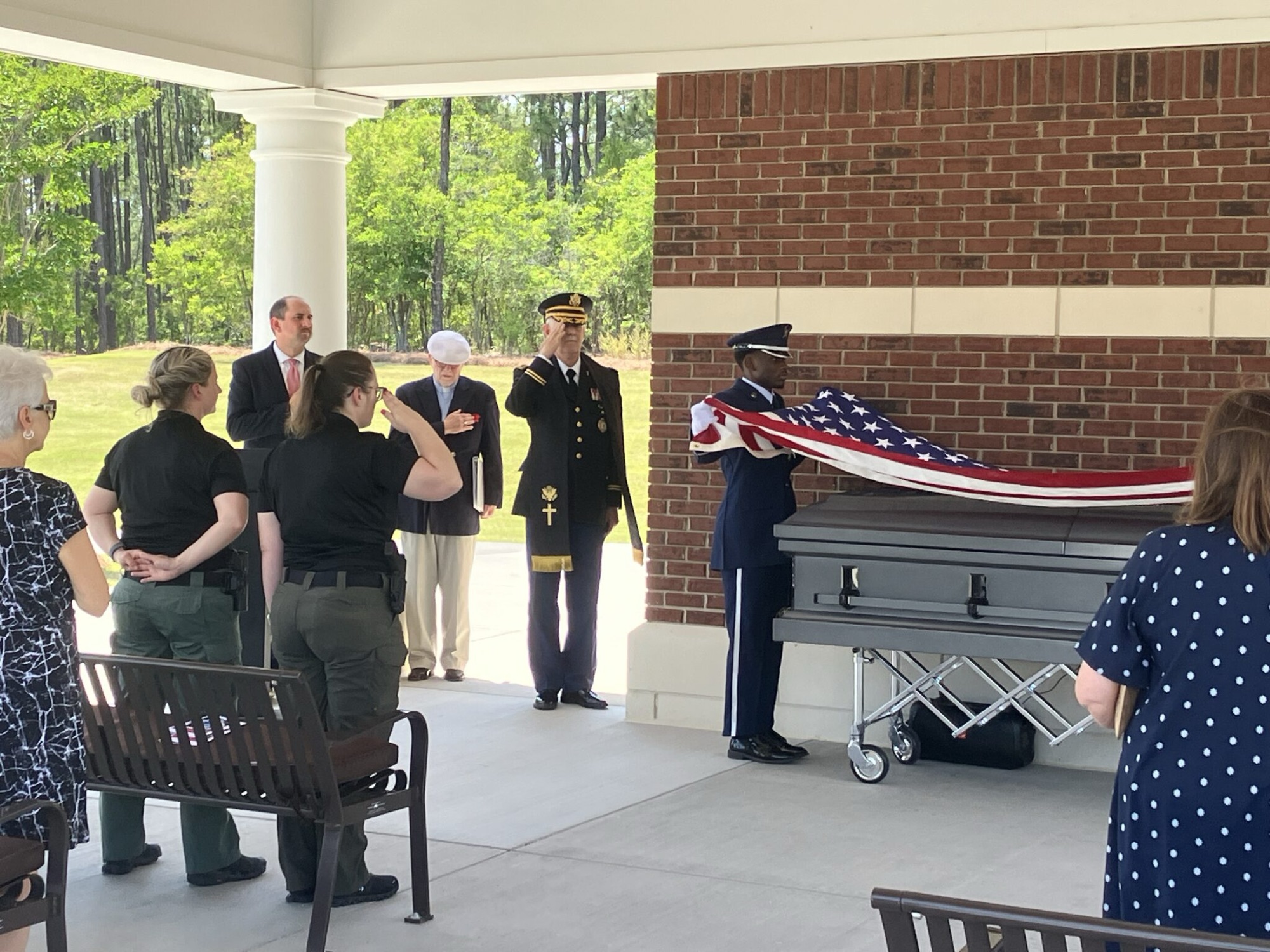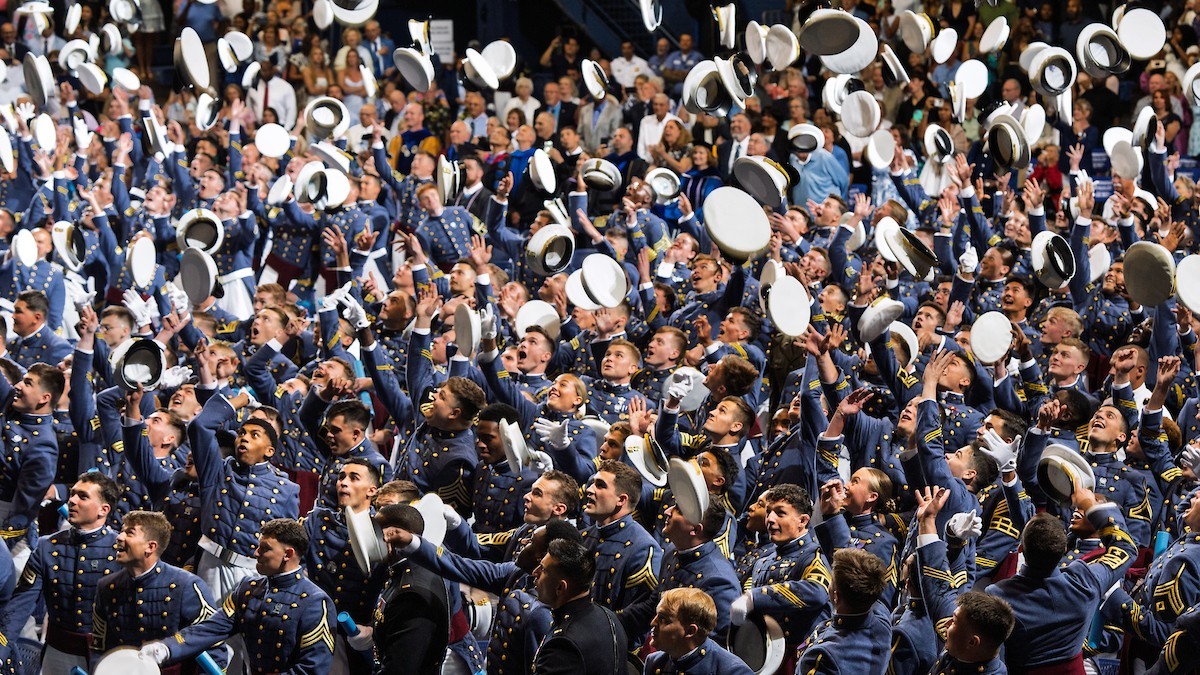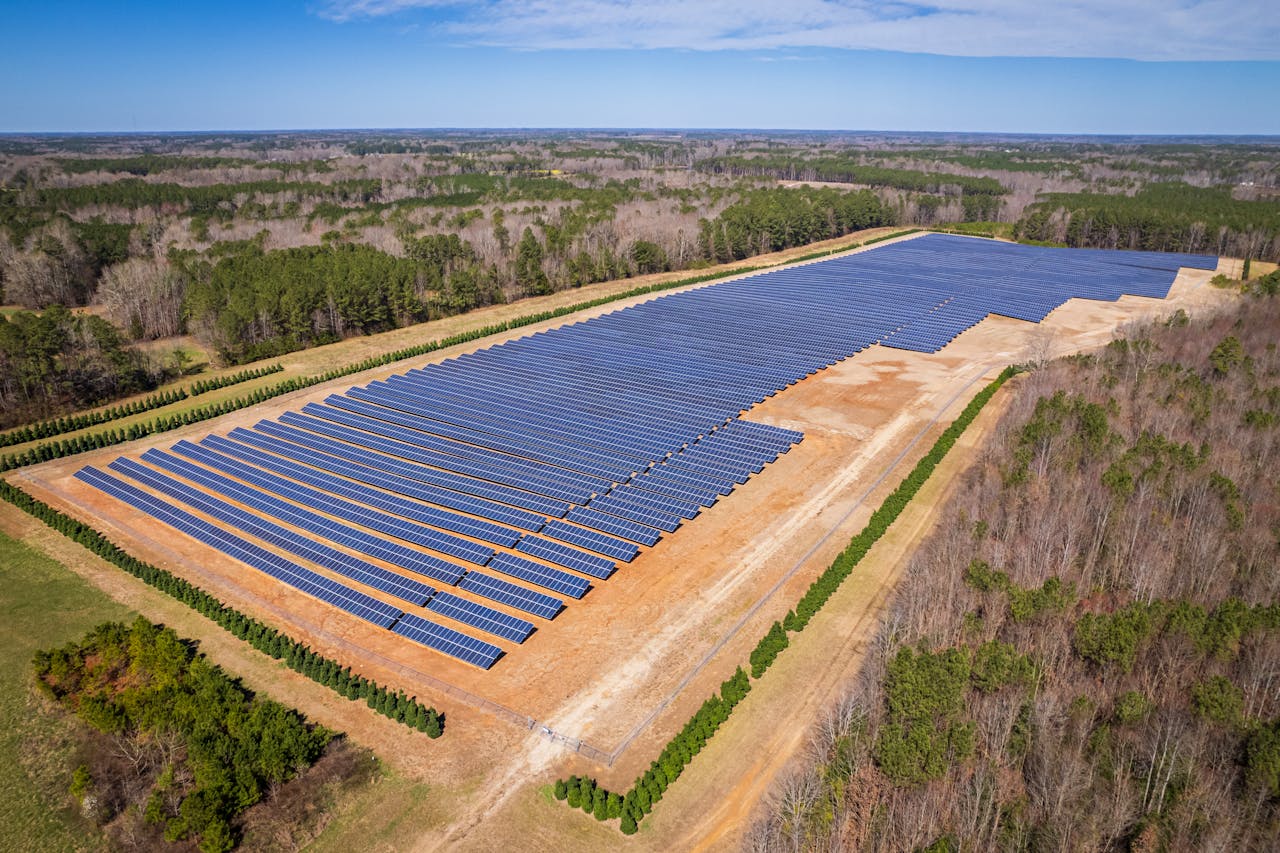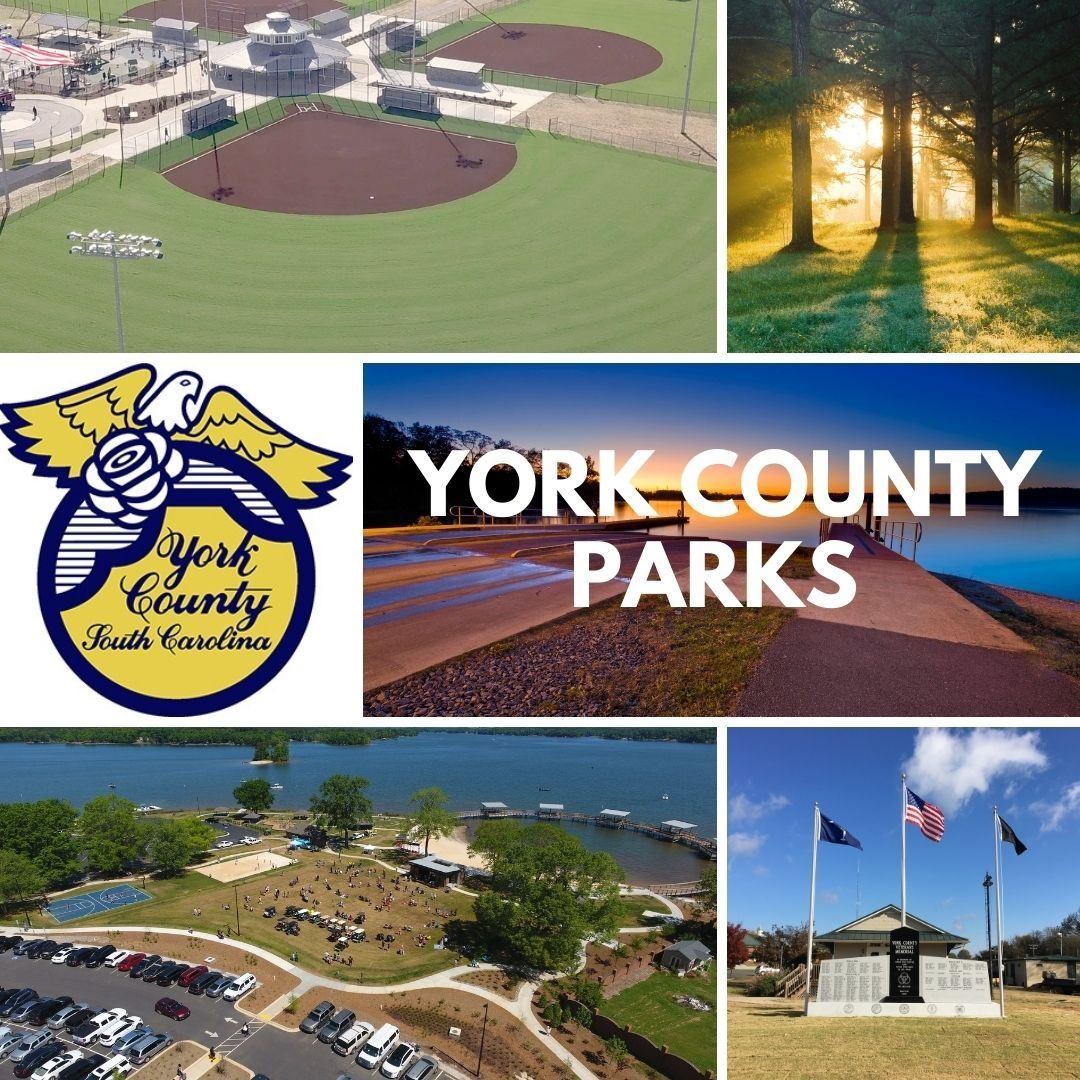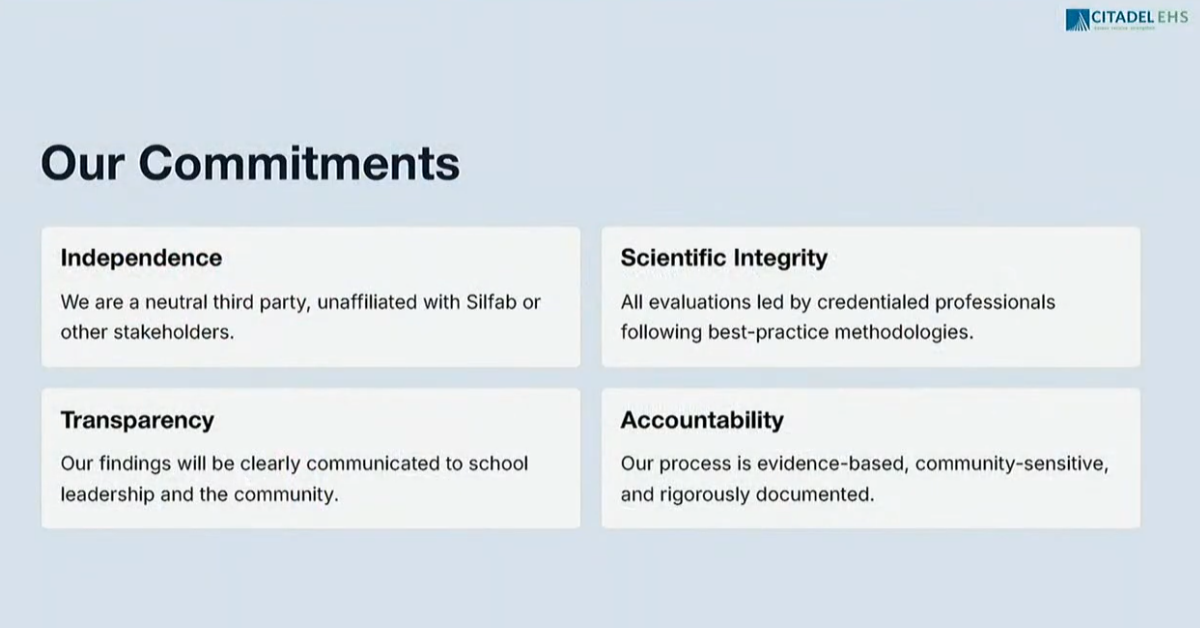BY: ABRAHAM KENMORE – SC Daily Gazette MAY 25, 2024 11:10 AM
COLUMBIA — Rick Leiderman, a 71-year-old former nuclear weapons specialist in the Air Force, was laid to rest Friday at Fort Jackson National Cemetery.
With no living family, his short ceremony was attended instead by volunteers, including members of the motorcycle-riding Patriot Guard.
The folded flag from Leiderman’s casket was presented to representatives of the Spartanburg coroner’s office, who had searched for any living family and confirmed Leiderman’s military service after he died in a nursing facility in the county.

Chaplain Samuel J.T. Boone delivers the message at the memorial for Rick Leiderman, an Air Force veteran, at Fort Jackson National Cemetery in Columbia, SC, on Friday, May 24, 2024 (Abraham Kenmore/SC Daily Gazette)
“Without their work and their investigation to make sure he was a veteran, we would not be here,” William Lynch, program director for the Homeless Veterans Burial Program with Dunbar funeral homes, told those at the service.
“Up until a few days ago it was not required for a coroner’s office to search and see if someone was a veteran.”
On May 13, Gov. Henry McMaster signed a law mandating that coroners and funeral home directors determine if unclaimed remains belong to a veteran, and if so, contact an organization that arranges burials for veterans within 120 days.
Lynch, who is a manager of the Dunbar Funeral Home in Irmo, said he’s been advocating for the law for five years. It got put on the backburner amid the pandemic, he said.
“I was very excited to see that come to fruition,” he said.
Lynch is not a veteran himself but has been arranging services for veterans whose remains are unclaimed almost as long as he has been a funeral director. He got his license as a funeral director in January 2017 and set up the South Carolina Homeless Veterans Burial Program in July of that year.
Both of his grandfathers were veterans, Lynch said.
In January 2018, he saw news coverage of Dennis Reidy, a homeless veteran who died without family, which inspired his work. Since then, he estimates he has organized roughly 20 services for unclaimed veterans.
Tom Yeoman, a retired lieutenant colonel in the Marine Corp and now a ride captain for the Patriot Guard, attended the service Friday. Yeoman said he appreciates that coroners now have to check if a deceased person was a veteran.

Attendees at the memorial for Rick Leiderman, a 71 year old Air Force Veteran, at Fort Jackson National Cemetery in Columbia, SC, on Friday, May 24, 2024 (Abraham Kenmore/SC Daily Gazette)
“Why would you not do that?” he said. “But I’m glad it is, because there’s always someone out there who goes, ‘That’s not important.’ But it’s important to somebody.”
Rusty Clevenger, the coroner for Spartanburg County, said the new law gave them a clear way to make sure that any veterans without family can be laid to rest with other service members.
“All 46 counties can now participate in one central location for our veterans, and I think that’s exceptionally important,” he told the SC Daily Gazette.
He also said he plans to display the folded flag in the coroner’s office.
Other new SC laws concerning veterans
The law on unclaimed veterans was just one of several measures signed into law this year that are designed to ensure veterans receive proper services in the Palmetto State.
Rep. Bobby Cox, R-Greer, lead sponsor of the unclaimed remains law, is the chair of a House subcommittee on military and veterans’ affairs. The former Army Ranger worked closely with the Department of Veterans Affairs to identify issues and sponsored two other bills as well.
One of these allows veterans to be buried in military cemeteries in South Carolina without meeting a residency requirement. Previously, state law required veterans to either live in South Carolina when they joined the military, when they died, or for at least five years during their life.
“I’m a veteran myself. I changed my state of residency when I was traveling throughout the Army,” Cox said, adding he wouldn’t have wanted his family to have to prove residency for him “to be buried in South Carolina where my family lives — where I was born.”
The law did not arise from any particular situation: Cox said he does not know of any out-of-state veterans whose families wanted to bury them in South Carolina but were denied.
Making the change brought South Carolina in line with federal guidelines, so the state could continue to receive federal funds for veteran cemeteries. South Carolina was one of eight states with a residency requirement for these cemeteries, according to the Department of Veterans Affairs.
Cox also sponsored legislation to revitalize the Veteran Trust Fund, allowing trustees to spend money on fundraising.
The trust is designed to distribute grants to nonprofits that serve veterans. But the trustees were limited to distributing funds received mostly through voluntary contributions from state tax forms. This only amounted to $20,000 a year in grants, according to the Department.
The Legislature also passed an update that allowed disabled veterans to immediately take an existing property tax exemption on their home, rather than waiting until the first full year they owned the home.
Rep. Raye Felder, R-Fort Mill, who sponsored the bill, said she had a constituent who bought a home in February one year and was required to escrow the property taxes for the remainder of the year. The tax requirement endangered the loan.
“My local veterans’ group was very appreciative,” Felder said of the new law.
The intent of original law it updated was that veterans get the benefit “from day one,” she said, but it just wasn’t worded that way.
State Veterans Affairs Secretary Todd McCaffrey expressed appreciation for the work of the Legislature in passing the new laws.
“These key pieces of legislation not only improve the quality of life for our military and families but also champions our state’s progress of ensuring our veterans receive the aid and benefits they deserve with ease,” he said in a statement to the Gazette.



